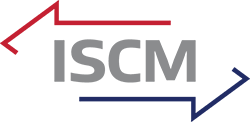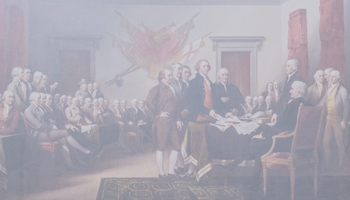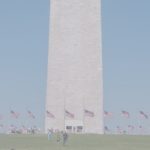
FTZ’ine November 2024
October 31, 2024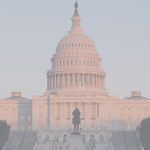
FTZ’ine January 2025
January 6, 2025I Beg Your Pardon?
A 25% tariff on all goods from Canada?
And Mexico?
And another 10% on everything from China?
Eight weeks before he is sworn in, President-elect Donald Trump announced those new tariffs will go into place on his first day in office unless the three countries stem the flow of migrants and fentanyl into the U.S.
Traders are trying to stay out of the cross-fire, but that may be difficult depending on how the new tariffs are implemented. The FTZ community needs to engage the incoming administration now to avoid the headaches of the original Section 301 tariff language that rewarded offshore operations.
Since its inception in 1934, the U.S. Foreign-Trade Zone program has offered high ground for domestic and international business continuity in uncertain times.
And global businesses in the U.S. need that more than ever right now.
Top Story: Incoming
What polls had said would be a close Presidential race turned out to be far from it, surprising many in the trade community. Republicans not only won the White House; they will hold a majority in both chambers starting next year. New tariffs on imports from around the world are no longer just a campaign theme; impact is imminent.
Those Congressional majorities are slim though, which means that contentious legislation, and Cabinet picks, may be hard to enact through traditional means. That includes tariff rates, and the President-elect has already announced that he will enact tariff increases on goods from Mexico, Canada, and China “from Day 1” through Presidential Proclamation rather than legislation.
The specific wording of those Proclamations will quickly have impacts on U.S. foreign-trade zones across the country and perhaps the program itself. FTZs will want to quickly consider how their individual supply chains will be impacted so they are prepared when the Proclamations are issued and implemented.
If the purpose of the new tariffs is to protect U.S. interests, it is imperative that the tariffs not be installed in a way that negatively impacts U.S. manufacturing and distribution operations. Grantees should let their local international business community know that the FTZ program offers protection from anomalies in U.S. trade policy that disadvantage U.S. employment in global trade. And all FTZ program participants should let their Washington representatives know that it needs to stay that way.
FTZs make imports part of the economic answer, instead of part of the import ‘problem’, by combining those imports with domestic materials, equipment, and labor to make U.S. goods that remain internationally competitive. Often that message is lost in Washington sound bites that can't seem to last long enough to get past the word "foreign".
In a post on the social media platform Truth Social, the President-elect wrote "On January 20th, as one of my many first Executive Orders, I will sign all necessary documents to charge Mexico and Canada a 25% Tariff on ALL products coming into the United States, and its ridiculous Open Borders." "This Tariff will remain in effect until such time as Drugs, in particular Fentanyl, and all Illegal Aliens stop this Invasion of our Country!"
The current plan, especially if it is expanded, could also impact FTZs by causing affected countries to retaliate with tariffs on American goods. In 2018 and 2019, the retaliation was particularly painful for American farmers when shiploads of crops were left to rot on terminals up and down the west coast.
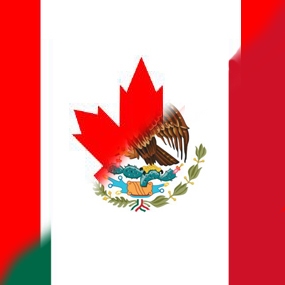

Tech Tip: How Will CBP Implement New Tariffs on Canada, Mexico China? And When?
The exact nature of any new tariffs placed on our major trading partners will not be known until the actual Proclamations are signed by the President. We know when that will be – January 20, 2025. We know where that will take place – Washington, DC. But how will the fees be collected? What options does U.S. Customs have for implementation, and how should FTZs plan?
CBP would need time to prepare ACE to collect additional monies at the time of entry. For this and other reasons there is normally some period of time between announcement of a special tariff and its date of implementation. Even so, the President could order CBP to assess the fees beginning immediately and send bills at the time of liquidation if ACE isn't ready yet.
It is more plausible that there will be an allowance of time after the Proclamations are signed but before the tariffs go into effect. That would give the countries more time to negotiate the drug and immigration issues that underly the problem, and more time for CBP to complete the required programming in ACE. If the 25% tariffs do go into effect, FTZs could play an important role in deferring the duties while the negotiations take place. That would be a new use of the program; merchandise from our USMCA trading partners are not normally good candidates for FTZ storage for CBP purposes.
The China tariffs present the opposite challenge to the FTZ industry. If history is a guide, the additional 10% tariff will be assessed at the time of entry, meaning that foreign-status inventory withdrawn for consumption from an FTZ after the new China tariff takes effect will likely have to pay the higher rate.
Questions about how to prepare your Zone for the new Canada, Mexico, and China tariffs? Contact us at info@iscm.co.
Commerce Secretary+
Howard W. Lutnick was named by President-elect Trump to be the next Secretary of Commerce.
Mr. Lutnick, the C.E.O. of Wall Street titan Cantor Fitzgerald, had already played a key role in recruiting talent for the new administration.
When announcing Mr. Lutnick for the role, Mr. Trump said that his Commerce Secretary would have “additional direct responsibility for the Office of the United States Trade Representative.” This could mean that the new administration will try to fold USTR into the Commerce Department, a move that has been tried before to combine responsibility for trade policy and execution.
Mr. Lutnick has been a prolific donor to the Trump campaign, and a supporter of more and bigger tariffs. His wide business holdings though may invoke tough questions from Senators during his confirmation process.
Commerce Secretary has become an increasingly important policy role, and would become more so if it included oversight of USTR, the President’s chief negotiator on trade.
Jamieson Greer has been named to lead that Office of the United States Trade Representative. Greer was chief of staff to the USTR during President Trump’s first term. He worked under Robert Lighthizer, a proponent of the use of tariffs to force American companies to move supply chains out of China.
A veteran of the US Air Force, Greer was also part of the negotiating team that led to a revamp of the North American Free Trade Agreement.
What About Bob?
Notably missing from personnel announcements made so far is Robert Lighthizer.
Lighthizer may have been wary of reporting through Lutnick, as opposed to directly to the President. He may have also been non-plussed with an assignment to the same job he held in the first Trump administration. President-elect Trump had previously said he wanted him as a trade czar, and there is still time for Bob Lighthizer to be named to a leading role.
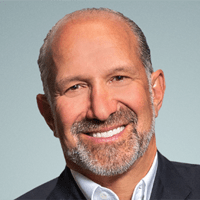
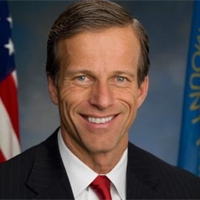
53 Is A Bigger Number Than 220
They are still counting in California.
Almost one month after election day we still do not know who won the House seat for the 13th district of California, in the San Joaquin valley. But we already know that Republicans have won 220 seats, at least two votes more than needed to control the House. That will preserve Michael S. Johnson’s job as Speaker in the new term, but is unlikely to be enough to push through difficult legislation. That is especially true because several Republican seats may be vacant until Republican appointees to the new Trump administration can be replaced.
That means Republicans will effectively have the same slim majority they have now, which has recently forced them to work (and compromise) with Democrats.
On the other side of the Capitol dome, Republicans won a majority in the Senate, with 53 votes. Add a Republican Vice-President to break ties and the 53-vote majority in the Senate is perhaps more meaningful than the 220-vote majority in the House.
The Republican majority can now claim all of the Senate Committee Chair assignments, giving the party further control of the agenda in the chamber.
Not everything going on in the Senate is good news for the incoming Trump administration though.
The Senate took the unusual step of electing a new majority leader before the old one, Mitch McConnell, had retired. President-elect Trump’s preferred candidate was Rick Scott of Florida. but in choosing John Thune of South Dakota as its leader, the Senate has perhaps already announced that it is planning to march to its own drum.
This became evident when Matt Gaetz, Mr. Trump’s pick for attorney general, lasted only eight days after withering opposition from the Senate.
HHS and FDA Picks Portend Significant Change
President-elect Trump announced that he would nominate Dr. Martin A. Makary to be Commissioner of the Food and Drug Administration. Senate confirmation is required to lead this federal agency that touches the operations of many foreign-trade zones across the country.
President-elect Trump also announced Robert F. Kennedy Jr. as his choice to become Secretary of the Department of Health and Human Services. Mr. Kennedy has been outspoken in his desire to overhaul the FDA, saying he would fire agency staff members and clamp down on the food and pharmaceutical industries.
Mr. Kennedy has also criticized the so-called user fees from drug and medical device companies that pay for thousands of employees to review industry products and account for nearly half of the agency’s overall budget of $7.2 billion.
In a post on social media, Mr. Trump said: “F.D.A. has lost the trust of Americans and lost sight of its primary goal as a regulator.” He said that Dr. Makary would work to “properly evaluate harmful chemicals poisoning our nation’s food supply and drugs.”
“I am confident that Dr. Makary, having dedicated his career to high-quality, lower-cost care will restore the F.D.A. to the gold standard of scientific research and cut the bureaucratic red tape at the agency to make sure Americans get the medical cures and treatments they deserve,” Mr. Trump said in a statement.
The FDA is tasked with ensuring that the pharmaceutical supply chain is secure. It sends staff employees to inspect food and drug facilities in the United States and overseas to verify that drugs are potent and injectable therapies are sterile. The agency also oversees recalls of harmful products, including fresh produce and other foods that can become contaminated with deadly pathogens, like E. coli or listeria.
Dr. Makary was born in England, but moved to the United States as a child and grew up in rural Pennsylvania. An accomplished surgeon and member of the elite National Academy of Medicine, Dr. Makary holds establishment credentials, including a master’s degree in public health from Harvard University. He is the Mark Ravitch Chair in gastrointestinal surgery at Johns Hopkins School of Medicine, and teaches public health policy as a professor at the university’s school of public health.

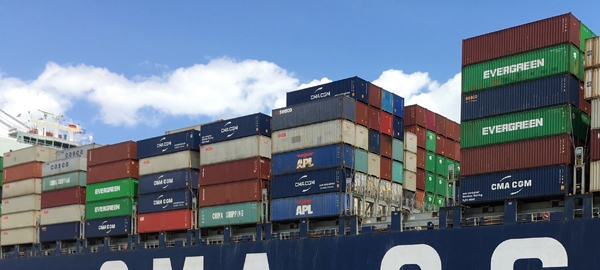
FTZ Staff Activity
- FTZ Board Staff processed a processed a Minor Boundary Modification (S-187-2024) in FTZ 57E on behalf of Real Solutions LLC, Taylorsville, NC on October 28, 2024
- FTZ Board Staff processed a processed a Minor Boundary Modification (S-188-2024) in FTZ 147 on behalf of Harley-Davidson, Inc., York, PA on October 28, 2024
- FTZ Board Staff processed a processed a Minor Boundary Modification (S-189-2024) in FTZ 99I on behalf of Bloom Energy Corporation, Newark, DE on October 28, 2024
- FTZ Board Staff processed a processed a Minor Boundary Modification (S-190-2024) in FTZ 38K on behalf of ZF Transmissions Gray Court, LLC, Gray Court, SC on October 29, 2024
- FTZ Board Staff processed a processed a Minor Boundary Modification (S-191-2024) in FTZ 26P on behalf of Kubota North America, Gainesville, GA on October 29, 2024
- FTZ Board Staff processed a processed a Minor Boundary Modification (S-192-2024) in FTZ 126D on behalf of Tesla, Inc., Sparks, NV on October 29, 2024
- FTZ Board Staff processed a Traditional Site Framework Minor Boundary Modification Application (S-193-2024) in FTZ 116F on behalf of Port Arthur LNG, LLC, Baytown, TX on October 30, 2024
- FTZ Board Staff processed a Traditional Site Framework Minor Boundary Modification Application (S-194-2024) in FTZ 116E on behalf of Port Arthur LNG Terminal, LLC, Port Arthur, TX on October 31, 2024
- FTZ Board Staff processed a processed a Minor Boundary Modification (S-195-2024) in FTZ 197 on behalf of Expeditors International of Washington, Inc., Santa Teresa, WA on November 5, 2024
- FTZ Board Staff processed a processed a Minor Boundary Modification (S-196-2024) in FTZ 35L on behalf of PCI Pharma Services, Croydon, PA on November 6, 2024
- FTZ Board Staff processed a processed a Minor Boundary Modification (S-197-2024) in FTZ 41 on behalf of Zebra Technologies Corporation, Kenosha, WI on November 8, 2024
- FTZ Board Staff processed a processed a Minor Boundary Modification (S-198-2024) in FTZ 32 on behalf of DSV Sea & Air, Inc., Miami, FL on November 7, 2024
- FTZ Board Staff processed a processed a Minor Boundary Modification (S-199-2024) in FTZ 138L on behalf of FluidQuip KS, LLC on November 12, 2024
- FTZ Board Staff processed a processed a Traditional Site Framework Minor Boundary Modification (S-200-2024) in FTZ 68 on behalf of Worldhaul Logistics, LLC, El Paso, TX on November 13, 2024
- FTZ Board Staff processed a processed a Minor Boundary Modification (S-201-2024) in FTZ 79F on behalf of Gourmet Foods International, Lakeland, FL on November 13, 2024
- FTZ Board Staff processed a processed a Minor Boundary Modification (S-202-2024) in FTZ 1F on behalf of Ferrari Express, Inc., New York, NY on November 13, 2024
- FTZ Board Staff processed a processed a Minor Boundary Modification (S-203-2024) in FTZ 89 on behalf of UVW Inc. dba GPI Beauty, Las Vegas, NV on November 14, 2024
- FTZ Board Staff processed a processed a Minor Boundary Modification (S-204-2024) in FTZ 29AA on behalf of SOLO Louisville LLC dba SOLO Louisville World Partners LLC, Louisville, KY on November 18, 2024
- FTZ Board Staff processed a Traditional Site Framework Subzone Application (S-205-2024) in FTZ 220 on behalf of Wurth Electronics Midcom, Inc., Watertown, SD on November, 2024
- FTZ Board Staff processed a Traditional Site Framework Subzone Application (S-206-2024) in FTZ 102 on behalf of True Manufacturing Co., Inc., O’Fallon/Mexico, MO on November, 2024
- FTZ Board Staff processed a processed a Minor Boundary Modification (S-207-2024) in FTZ 74 on behalf of Ancora Warehousing & Logistics, LLC, Essex, MD on November 20, 2024
- FTZ Board Staff processed a processed a Minor Boundary Modification (S-208-2024) in FTZ 52 on behalf of MTC Industries, Inc., Hauppage, NY on November 21, 2024
- FTZ Board Staff processed a processed a Minor Boundary Modification (S-209-2024) in FTZ 121 on behalf of Jupiter Bach North America, Inc., Schenectady, NY on November 26, 2024
Foreign-Trade Zone Board Activity
-
- Merck, Sharp & Dohme LLC submitted a notification of proposed production activity for additional components of pharmaceutical products for research and development within Foreign-Trade Zone 49Y in Rahway, New Jersey. MORE
- Unimacts Company received authorization of production activity for steel products within Foreign-Trade Zone 265 in Conroe, Texas. MORE
- Boss Laser, LLC withdrew its application for subzone status within Foreign-Trade Zone 250 in Sanford, Florida. MORE
- Boss Laser, LLC withdrew its notification of proposed production activity for laser machines within Foreign-Trade Zone 250 in Sanford, Florida. MORE
- Senior Operation LLC received authorization to operate its facilities as subzone H of Foreign-Trade Zone 80 in New Braunfels, Texas. MORE
- LG Energy Solution Arizona, Inc. received authorization of production activity for cylindrical lithium-ion battery cells and lithium iron phosphate pouch-type batteries within Foreign-Trade Zone 75V in Queen Creek, Arizona. MORE
- AESC US LLC received authorization of production activity for lithium-ion battery cells within Foreign-Trade Zone 78L in Smyrna, Tennessee. MORE
- Permco FTZ LLC received approval to operate its Montville and Streetsboro, Ohio facilities as Subzone M of Foreign-Trade Zone 40. MORE
- Corteva Agriscience, LLC submitted a notification of proposed production activity for crop protection products within Foreign-Trade Zone 144A in Valdosta, Georgia. MORE
- Photonics Industries International Inc. received authorization of production activity for laser systems within Foreign-Trade Zone 52 in Ronkonkoma, New York. MORE
- Wurth Electronics Midcom, Inc. submitted an application to operate its facilities in Watertown, South Dakota as a subzone of Foreign-Trade Zone 220. MORE
- True Manufacturing Co., Inc. submitted an application to operate its facilities in O'Fallon and Mexico, Missouri as a subzone of Foreign-Trade Zone 102. MORE
- PCI Pharma Services submitted a notification of proposed production activity for pharmaceutical products packed in assembled devices within Foreign-Trade Zone 35L in Croydon and Philadelphia, Pennsylvania. MORE
- PCI Pharma Services submitted a notification of proposed production activity for pharmaceutical products within Foreign-Trade Zone 35L in Croydon and Philadelphia, Pennsylvania. MORE
- World Trade Center Denver received approval to reorganize Foreign-Trade Zone 123 under the Alternative Site Framework with a service area of Adams, Arapahoe, Broomfield, Denver, Douglas, Elbert, and Morgan Counties and a portion of Larimer and Weld Counties, Colorado. MORE
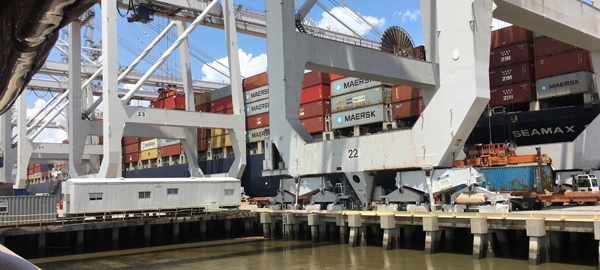
I Beg Your Pardon?:
A 25% tariff on all goods from Canada?
And Mexico?
And another 10% on everything from China?
Eight weeks before he is sworn in, President-elect Donald Trump announced those new tariffs will go into place on his first day in office unless the three countries stem the flow of migrants and fentanyl into the U.S.
Traders are trying to stay out of the cross-fire, but that may be difficult depending on how the new tariffs are implemented. The FTZ community needs to engage the incoming administration now to avoid the headaches of the original Section 301 tariff language that rewarded offshore operations.
Since its inception in 1934, the U.S. Foreign-Trade Zone program has offered high ground for domestic and international business continuity in uncertain times.
And global businesses in the U.S. need that more than ever right now.
